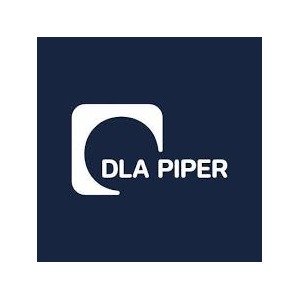Best Water Law Lawyers in Denmark
Share your needs with us, get contacted by law firms.
Free. Takes 2 min.
Or refine your search by selecting a city:
List of the best lawyers in Denmark
About Water Law in Denmark
Water Law in Denmark refers to the set of legal rules and regulations governing the use, management, protection, and distribution of water resources. This area of law covers the rights and responsibilities related to surface water, groundwater, watercourses, lakes, and coastal waters. Danish water legislation is designed to ensure sustainable use, high water quality, environmental protection, and fair access for various stakeholders, including individuals, businesses, and municipalities. Water Law also aligns with European Union directives, particularly those targeting clean water, pollution prevention, and ecosystem preservation.
Why You May Need a Lawyer
Legal situations involving water rights and water management can be complex. You might need a lawyer if you:
- Are involved in a dispute over water usage or access rights with neighbors, businesses, or public authorities.
- Run an agricultural, industrial, or commercial entity that relies on water abstraction, discharge, or treatment.
- Encounter environmental compliance issues or receive fines related to water pollution or management.
- Plan projects that might impact watercourses, wetlands, lakes, or coastal areas and require permits or environmental assessments.
- Are affected by government regulation changes regarding water allocation or taxation.
- Face damage caused by water runoff, flooding, or changes to natural water bodies.
- Are uncertain about your obligations or rights under national, local, or EU water-related regulation.
Local Laws Overview
Key aspects of Water Law in Denmark include:
- The Danish Watercourse Act (Vandløbsloven): Regulates the maintenance, alteration, and use of watercourses, as well as the division of responsibility among landowners and municipalities.
- The Environmental Protection Act (Miljøbeskyttelsesloven): Governs the prevention of water pollution, permits for discharges, and environmental impact assessments for relevant projects.
- The Water Plan System: Implemented under EU directives, Denmark adopts river basin management plans to ensure sustainable water resource use, protect habitats, and meet quality goals.
- Groundwater and Drinking Water: Specific regulations protect groundwater sources for drinking water and establish quality standards and procedures for permits related to groundwater abstraction.
- Coastal and Marine Regulations: Control activities near or in coastal waters, including construction and land reclamation, to balance economic interests and environmental concerns.
- Permits and licenses are often needed for activities that may impact water bodies, and public consultation may be required for significant projects.
Frequently Asked Questions
What is Water Law and why is it important in Denmark?
Water Law regulates the use, management, and protection of water resources. In Denmark, it is important to ensure fair access, prevent pollution, protect ecosystems, and comply with EU standards.
Who is responsible for maintaining streams and watercourses?
Responsibility often lies with local municipalities, but landowners adjacent to watercourses also share maintenance duties according to the Danish Watercourse Act.
Do I need a permit to extract groundwater?
Yes, generally any significant extraction of groundwater for private, agricultural, or commercial use requires a permit from the municipality or relevant authorities.
What should I do if I suspect water pollution nearby?
You should report it to the local municipality or the Danish Environmental Protection Agency. They have the authority to investigate, manage incidents, and enforce regulations.
Can I build near a lake or river?
Construction near lakes, rivers, and coastlines typically requires permits because of regulations designed to protect water bodies, landscapes, and habitats.
How does the EU influence Water Law in Denmark?
Denmark aligns its Water Law with EU directives such as the Water Framework Directive, which sets common goals for water quality, sustainable usage, and protection across all member states.
What rules apply to irrigation for farming?
Agricultural irrigation is regulated to prevent over-abstraction and pollution. Farmers must obtain permits for major water withdrawals and follow best practices to avoid runoff contamination.
What happens if I fail to comply with water regulations?
Non-compliance can result in fines, enforcement actions, or even criminal charges in severe cases. Authorities may also order restoration or remediation measures.
Can I appeal a water-related decision made by public authorities?
Yes, most decisions regarding permits, enforcement actions, or regulations can be appealed to higher administrative bodies or courts. Legal representation is recommended.
How do I find out if there are restrictions on my property regarding water?
You can consult your local municipality, check public registers, or seek advice from a lawyer who can investigate restrictions or easements affecting your property.
Additional Resources
Helpful organizations and bodies for Water Law in Denmark include:
- Danish Environmental Protection Agency (Miljøstyrelsen): Oversees environmental regulations, including water quality and pollution control.
- Local Art Municipalities: Responsible for local watercourse management, permits, and enforcement.
- Danish Ministry of Environment: Develops national water and environmental policy.
- Danish Nature Agency: Manages nature, lakes, watercourses, and forests, and provides guidance on conservation.
- Legal Aid Offices (Retshjælp): Provide initial legal guidance, potentially at no cost for qualifying individuals.
- Professional organizations and environmental NGOs also offer advice and information on water protection and rights.
Next Steps
If you need legal assistance in Water Law:
- Identify the specific issue you are facing, and collect relevant documentation such as permits, correspondence, and maps.
- Contact your local municipality for guidance on permits, regulations, or recent changes affecting your property or activity.
- Seek professional legal advice from a lawyer specialized in Water Law. Many offer initial consultations to assess your situation.
- Utilize available resources, such as legal aid services or government agencies, for further information and support.
- If your issue involves a dispute or enforcement action, do not delay seeking legal help, as deadlines for appeals or responses may apply.
Lawzana helps you find the best lawyers and law firms in Denmark through a curated and pre-screened list of qualified legal professionals. Our platform offers rankings and detailed profiles of attorneys and law firms, allowing you to compare based on practice areas, including Water Law, experience, and client feedback.
Each profile includes a description of the firm's areas of practice, client reviews, team members and partners, year of establishment, spoken languages, office locations, contact information, social media presence, and any published articles or resources. Most firms on our platform speak English and are experienced in both local and international legal matters.
Get a quote from top-rated law firms in Denmark — quickly, securely, and without unnecessary hassle.
Disclaimer:
The information provided on this page is for general informational purposes only and does not constitute legal advice. While we strive to ensure the accuracy and relevance of the content, legal information may change over time, and interpretations of the law can vary. You should always consult with a qualified legal professional for advice specific to your situation.
We disclaim all liability for actions taken or not taken based on the content of this page. If you believe any information is incorrect or outdated, please contact us, and we will review and update it where appropriate.
Browse water law law firms by city in Denmark
Refine your search by selecting a city.
















